Today, the 24th conference of parties gathering – or COP 24 – of the UN Framework Convention on Climate Change has begun to conclude. As the biggest climate change meeting since the signing of the Paris Agreement, this is a significant moment in history, and one worth reflecting on, particularly as United States leadership continues to recede on this critical global issue.
In no uncertain terms, climate change is among the greatest international challenges of our time. It has truly strategic implications for the United States and its allies, and its effects and manifestations are rising in intensity and urgency by the day. The economic, social and security effects of a rapidly changing climate will be dramatic, and in managing this problem and mitigating its effects, the United States must showcase strong, dedicated leadership as the community of nations works towards credible and lasting solutions. Yet, what does “leadership” really mean for an issue as all-encompassing and international in nature as climate change?
Increasingly, and especially here in the U.S., there’s developed an important distinction between the leadership that can be provided by a president or the federal government, and the wider values-based leadership that a country can deliver on major issues through the actions and efforts of businesses, state and local government, NGOs, and every-day citizens. Climate change is a leading example of this: where, through the collective leadership of “everyone else,” the United States is continuing to act as a force for meaningful change despite the retrogressive thinking and recalcitrant behavior of the current Administration on this issue. That’s what I call “American leadership” – or, leadership defined by the values and norms that have made America the greatest nation on the planet these many decades. And it doesn’t require the U.S. government, or, “U.S. leadership,” to be effective.
On climate change, U.S. leadership has been intermittent at best. President H.W. Bush and President Clinton both deeply embraced the climate challenge, before President George W. Bush famously walked away from the Kyoto Protocols in 2001. Towards the end of his Presidency, though, President Bush took important steps to generate international climate action, most importantly through the creation of what was then known as the Major Emitters Forum (now the Major Economies Forum) – a collection of the most important economies in the world. President Obama used this group to generate the first important steps towards what later became the Paris Climate Agreement. President Trump has reversed course, deciding that the United States will withdraw from the agreement in 2020 (absent major and highly unlikely re-negotiations).
As the global community gathered at the COP 24 climate summit, a meeting Brookings scholars such as Todd Stern, David Victor and Samantha Gross have tracked extensively, and something the current Administration has chosen to marginalize, this most recent shift in U.S. leadership is deeply troubling, both for the nation and the world.
This doesn’t mean, however, that the U.S. is now irrelevant to the problem; in fact, it’s essential – and this is where American leadership comes in. Though the absence of U.S. governmental leadership from climate change is deeply regrettable and the U.S. is, in fact, most impactful when its two forms of leadership are harmonized, it’s not the same as saying that America is entirely absent from the picture. American carbon emissions have, in fact, declined steadily over the last several years. Indeed, America is the sixth fastest declining emitter in the world, ahead of countries like Germany, Canada and Japan. That’s less because of governmental action than it is because of American leadership at work, to include the dynamism of the American private sector, the actions taken by city and state leaders, and the engaged efforts of philanthropies and civil society, as well as universities and think tanks. These groups represent the bedrock of American values and exceptionalism, and it’s through them that America continues to lead in spite of the actions of current U.S. political leadership.
Despite its abdication of leadership on climate change, the Trump Administration’s desire to claim any win as their own is resulting in senior officials trying and failing to claim credit for these limited successes from their fellow Americans. Recent Administration claims linking their decision on Paris to substantial carbon reduction successes are, in fact, specious. Indeed, the success in U.S. carbon reductions came explicitly from the momentum of the Obama and previous administrations’ efforts and continued subnational efforts. Put differently, U.S. carbon reductions have occurred despite the current Administration, not because of it. And this, of course, says nothing about Trump Administration efforts to actively downplay key international climate reports, as well as those generated by the U.S. government itself.
That’s a reflection of the new realities of American leadership in the world. Even if the U.S. federal government returns to a scientifically grounded view on climate change, government action alone will be insufficient to solve this problem. In fact, the same holds true for solving most of the pressing problems of the 21st century, and American leadership in this new era will have to adapt to be able to mobilize new centers of power and new dynamics of decision-making – especially as technology reshapes the boundaries of where governments can and cannot shape public opinion. American leadership will have to transcend bilateral reflexes and transactional relationships of 2018 to pull in as wide a subset of the world’s major actors as is feasible.
Over the past quarter century, we’ve at times seen this dynamic already in action via the international coalitions that have emerged to tackle some of the world’s toughest problems. These coalitions regularly involved a group of Western governments at their core, were mobilized in part through multilateral institutions, and were almost always forged, led, or ultimately shepherded to success by the transformational presence of the United States. When wielded with the right balance of ambition and self-restraint, U.S. power has proved again and again to be the most impactful guiding force in world affairs. In these special moments, our federal government was guided by its values – or to say it another way, U.S. and American leadership were indistinguishable.
The private sector, particularly the American one, has a critical role to play on this and other important issues, as well. Though businesses exist to make a profit, that does not mean they are without values. Indeed, the American private sector has a strong track record of making financial decisions based on the same values that have made our nation so competitive. This was clearly on display at COP 24 this past week, as the business community resoundingly stated that the private sector “should no longer be viewed solely as greenhouse gas emissions culprits, but more as indispensable partners for climate action.” That couldn’t be more correct – and is a perfect example of American leadership at work.
This dynamic should be the rule, not the exception, for both the mitigation of climate change – changing the energy mix, while retaining economic dynamism – and for adapting to a changing climate. Even a “crash program” to control emissions, something that no major country has even begun to implement, won’t alter the reality that emissions are already accumulating in the atmosphere and heat is building up in the oceans. Sea level rise is perhaps the most important illustration – with direct risks to our economy, our society, and to our security. The American people cannot stand idle in such an environment, and, indeed, I believe they will not, regardless of the policy efforts being implemented by the federal government.
As we reflect upon the outcome of COP 24 and the important work the global community has continued to pursue, America – with the world’s largest and most innovative economy, with its dynamic metropolitan areas and innovative state governments, with its academic and philanthropic sector – will continue to be a source of leadership in the vital effort to mitigate and adapt to climate change, with or without the direct support of the current Administration. The transformative leadership of the American people transcends government entirely, and just as I’ve dedicated my life to defending the American people, I believe the American people will ultimately be the deciding factor in defending the health of our planet.
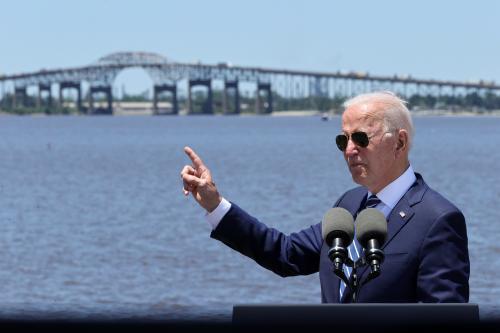

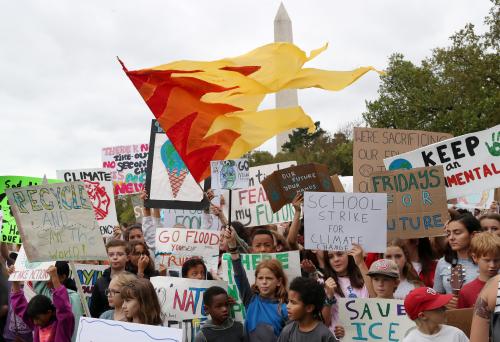
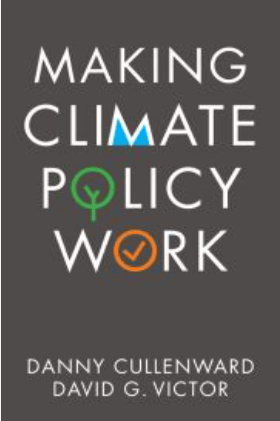
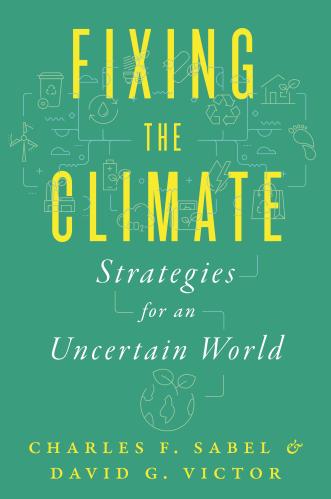
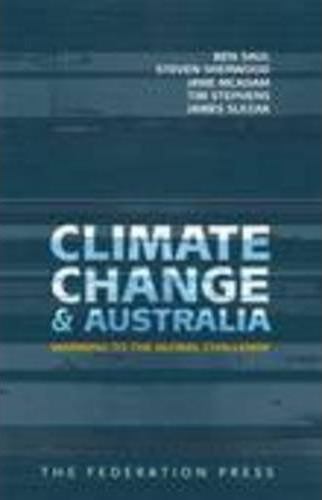


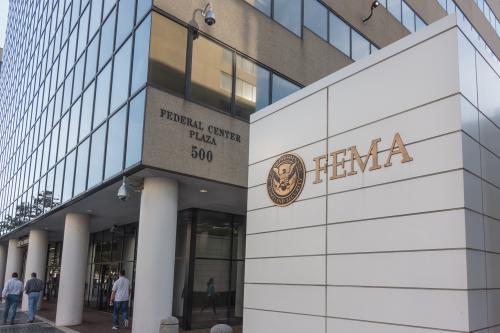

Commentary
American climate leadership without American government
December 14, 2018